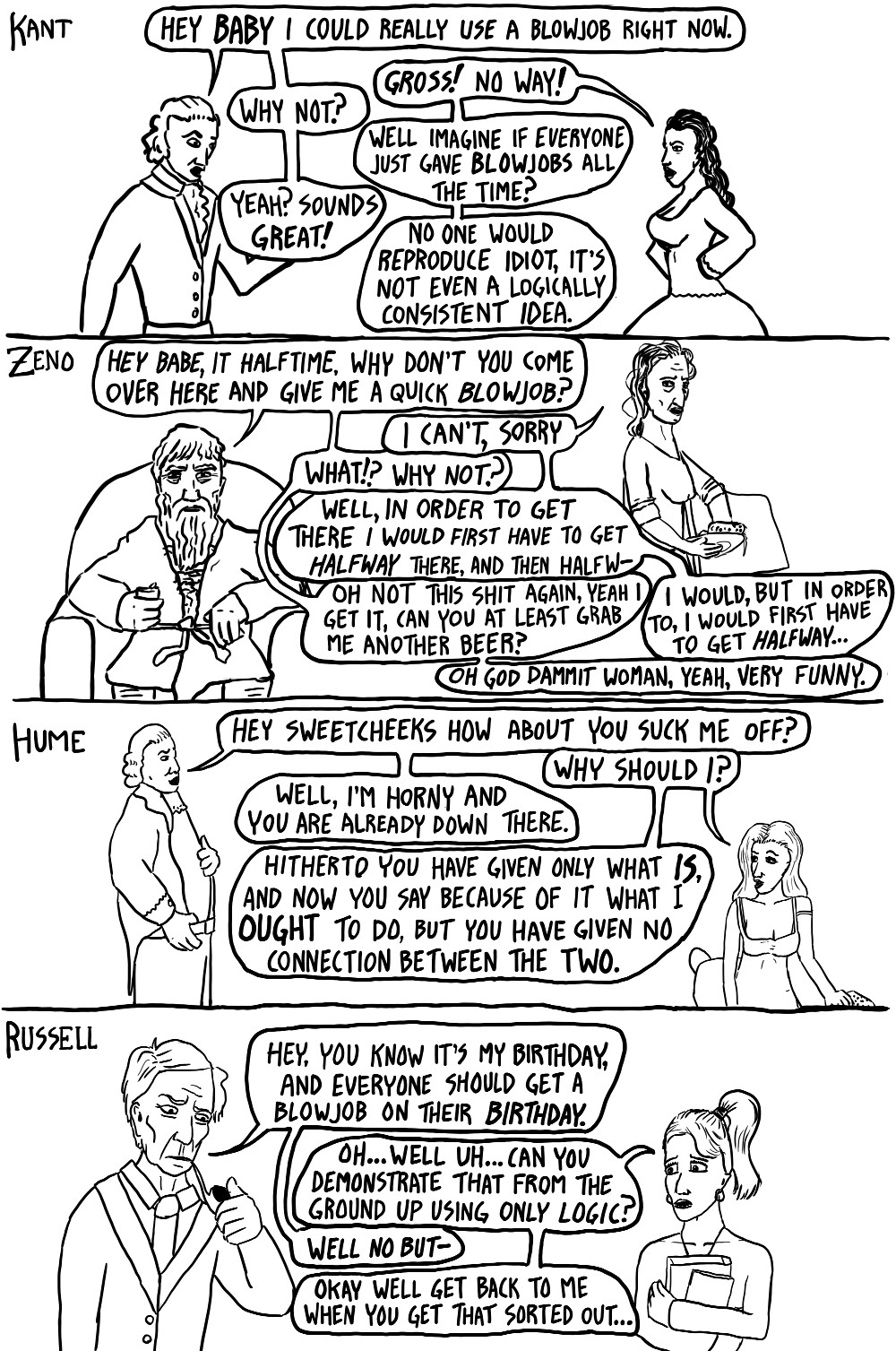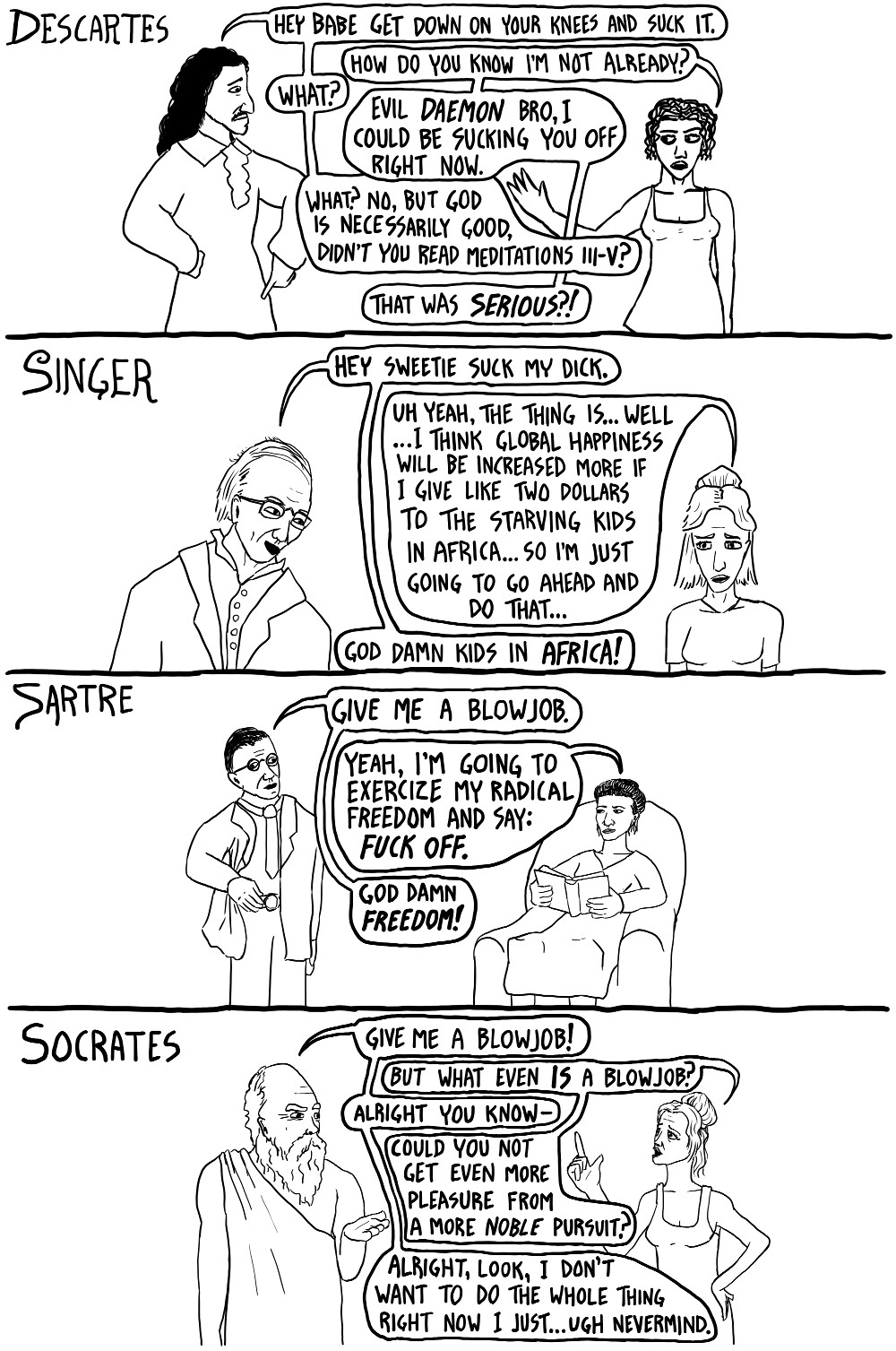

Kant: The categorical imperative says that actions must be logically consistent if they were to be universalized, in order for them to be moral.
Zeno: Zeno's Paradox says that motion is impossible, because in order to get to something, we would have to traverse an infinite amount of space, since we can keep dividing that space into infinite halves.
Hume: Hume's is/ought gap says that we cannot derive an 'ought' from an 'is'. That is, a moral command from a fact in the world.
Russell: Bertrand Russell's main project was the derive mathematics, and perhaps even language and meaning, entirely from logic. He largely failed in this project.
Descarte: In Meditations Descarte claimed we couldn't believe any of our observations, because it was possible an evil daemon was decieving us with false perceptions. In the later parts of meditations (III-V) he built back up our ability to trust our senses by some rather dubious proofs showing that God was necessarily good. Many people don't take those sections seriously anymore, and some theorize that even Descarte didn't, and only put them in to avoid the censors.
Singer: Peter Singer is a utilitarian who emphasizes that we should act rationally when making moral choices by increasing global happiness without prioritizing ourselves, people near us, or even humans over animals. Helping starving kids is obviously a better act than giving a small pleasure to one person.
Sartre: Sartre's radical freedom said that one was always free to do otherwise.
Socrates: Socrates often approached people, and questioned their understanding of basic concepts such as 'justice' or 'goodness'. He was rather obnoxious about it, and many of the people he questioned didn't want to really want to be bothered by him.
Permanent Link to this Comic: https://existentialcomics.com/comic/3
Support the comic on Patreon!










